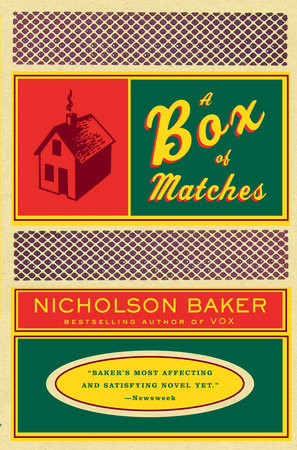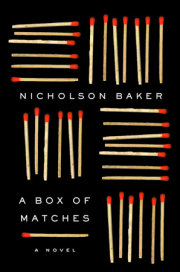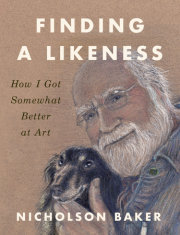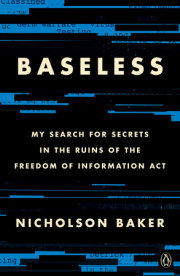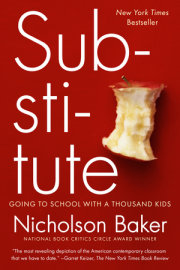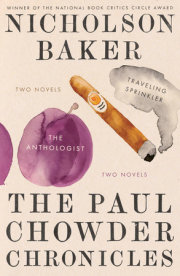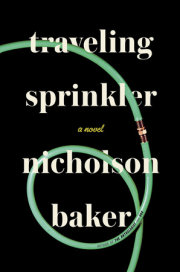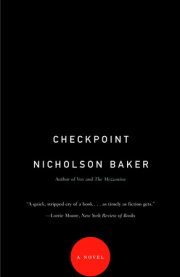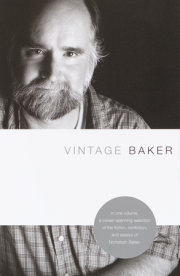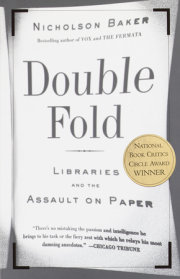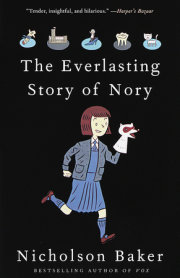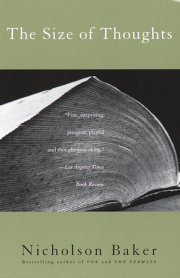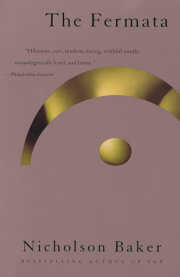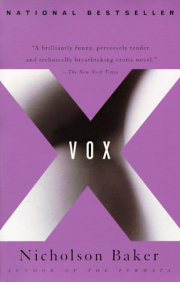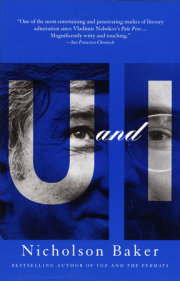Chapter 1Good morning, it’s January and it’s 4:17 a.m., and I’m going to sit here in the dark. I’m in the living room in my blue bathrobe, with an armchair pulled up to the fireplace. There isn’t much in the way of open flame at the moment because the underlayer of balled-up newspaper and paper-towel tubes has burned down and the wood hasn’t fully caught yet. So what I’m looking at is an orangey ember-cavern that resembles a monster’s sloppy mouth, filled with half-chewed, glowing bits of fire-meat. When it’s very dark like this you lose your sense of scale. Sometimes I think I’m steering a space-plane into a gigantic fissure in a dark and remote planet. The planet’s crust is beginning to break up, allowing an underground sea of lava to ooze out. Continents are tipping and foundering like melting icebergs, and I must fly in on my highly maneuverable rocket and save the colonists who are trapped there.
Last night my sleep was threatened by a toe-hole in my sock. I had known of the hole when I put the sock on in the morning–it was a white tube sock–but a hole seldom bothers me during the daytime. I can and do wear socks all day that have a monstrous rear-tear through which the entire heel projects like a dinner roll. But at night the edges of the hole come alive. I was reading my book of Robert Service poems last night around nine-thirty, when the hole’s edge began tickling and pestering the skin of the two toes that projected through. I tried to retract the toes and use them to catch some of the edge of the sock’s fabric, pulling it over the opening like a too-small blanket that has slid off the bed, but that didn’t work–it seldom does. I knew that later on, after midnight, I would wake up and feel the coolness of the sheet on those two exposed toes, which would trouble me, even though that same coolness wouldn’t trouble me if the entire foot was exposed. I would become wakeful as a result of the toe-hole, and I didn’t want that, because I was starting a new regime of getting up at four in the morning.
Fortunately last night I had an alternative. I’d brought a clean white tube sock to bed with me to use as a mask over my eyes, in case Claire was going to read late. I have to have darkness to go to sleep. I have one of my grandfather’s eye masks, made of thick black silk probably in the thirties, but it smells like my grandfather, or at least it smells like the inside of his bedside table. The good thing about draping a sock over your eyes is that it is temporary. The sock slips off your head when you move, but by then you’ve gone to sleep and it has served its purpose.
So when the hole in the sock on my foot became intolerable, I reached down and pulled it off in a clean, strong motion and flipped it across the room in the direction of the trash can–although I have to say there is something almost painfully incongruous in the sight of an article of underclothing that one has worn and warmed with one’s own body for many days and years, lying bunched in the trash. And then onto my naked foot I pulled the fresh sock that I’d had on my face. It felt so good: oh, man, it felt good, really good. I moved my newly sheathed foot back into the far region of the sheets and pulled the heavy blankets around me and I took my hand and curved it and draped it over my eyes where the sock had been, the way a cat does with its paw. Eventually Claire got into bed. I heard her bedside light click on and I heard the pages of her book shuffle, and then she twisted around so we could kiss good-night. “You’ve got your hand over your eyes,” she said. I murmured. Then she turned and shifted her warmly pajamaed bottom towards me and I steered through the night with my hand on her hip, and the next thing I knew it was four a.m. and time to get up and make a fire.
Copyright © 2003 by Nicholson Baker. All rights reserved. No part of this excerpt may be reproduced or reprinted without permission in writing from the publisher.

